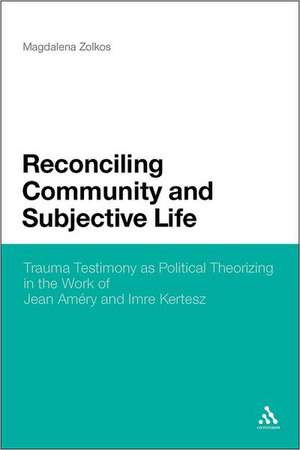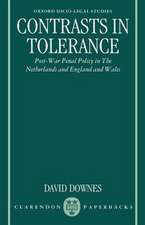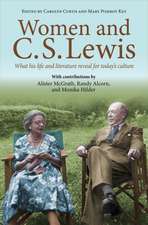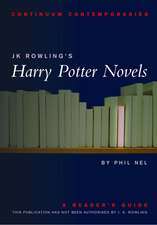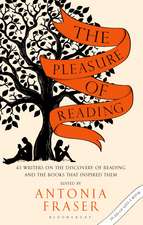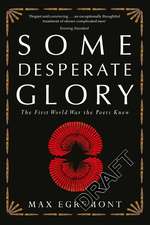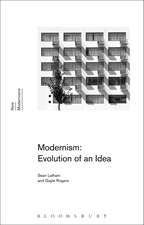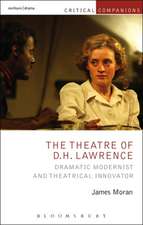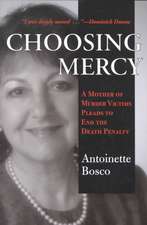Reconciling Community and Subjective Life: Trauma Testimony as Political Theorizing in the Work of Jean Améry and Imre Kertész
Autor Magdalena Zolkosen Limba Engleză Hardback – 9 iun 2010
| Toate formatele și edițiile | Preț | Express |
|---|---|---|
| Paperback (1) | 256.85 lei 6-8 săpt. | |
| Bloomsbury Publishing – 22 feb 2012 | 256.85 lei 6-8 săpt. | |
| Hardback (1) | 889.88 lei 6-8 săpt. | |
| Bloomsbury Publishing – 9 iun 2010 | 889.88 lei 6-8 săpt. |
Preț: 889.88 lei
Preț vechi: 1282.00 lei
-31% Nou
Puncte Express: 1335
Preț estimativ în valută:
170.27€ • 177.78$ • 140.93£
170.27€ • 177.78$ • 140.93£
Carte tipărită la comandă
Livrare economică 04-18 aprilie
Preluare comenzi: 021 569.72.76
Specificații
ISBN-13: 9780826431141
ISBN-10: 0826431143
Pagini: 256
Dimensiuni: 155 x 231 x 25 mm
Greutate: 0.48 kg
Ediția:New.
Editura: Bloomsbury Publishing
Colecția Continuum
Locul publicării:New York, United States
ISBN-10: 0826431143
Pagini: 256
Dimensiuni: 155 x 231 x 25 mm
Greutate: 0.48 kg
Ediția:New.
Editura: Bloomsbury Publishing
Colecția Continuum
Locul publicării:New York, United States
Caracteristici
Attempts to discuss transitional justice and reconciliation from the perspective of critical political theory that so far has been rare in that new academic field.
Notă biografică
Magdalena Zolkos is research fellow in political theory at the Center for Citizenship and Public Policy, University of Western Sydney. She has published on issues of reconciliation, collective trauma, community and testimony.
Cuprins
Acknowledgments Introduction Part I: On Jean Améry: "I say 'I'... merely out of habit"Chapter 1 - Resentment, Trauma Subjectivity and the Ordering of TimeChapter 2 - "A Wound Was Inflicted on Me"-Améry's Testimony to TortureChapter 3 - Thanatic Reconciliations in On Aging and On Suicide Part II: On Imre Kertész: "I don't know how I should continue"Chapter 4 - Fateless: Being "Without Fate," Without the Help of AnotherChapter 5 - Apocalypse, Testimony, and Love in Kaddish for a Child Not BornEpilogue - On IrreversibilityNotesBibliography
Recenzii
Reconciling Community and Subjective Life offers a careful and profound investigation of the testimonial address by Jean Améry and Imre Kertész. Zolkos' book is not an easy read, but if we live, as it has been suggested, in the era of the witness, it is indispensable and deeply thought-provoking. It offers a much needed and highly qualified corrective to current debates on trauma and subjectivity, resentment and reconciliation. --Thomas Brudholm, Associate Professor, University of Copenhagen. Author of Resentment's Virtue: Jean Améry and the Refusal to Forgive.
Magdalena Zolkos's absorbing study of Améry and Kertész delivers a long-awaited challenge to established paradigms of reading Holocaust testimonials. Bringing the discourse of testimony under the scrutiny of poststructuralist thought, psychoanalytic theory and trauma studies, this masterful and rigorous analysis reveals not only the ethical but also the political significance of testimonial literature in "post-catastrophic" times. -- Dorota Glowacka, University of King's College, London
Magdalena Zolkos' Reconciling Community and Subjective Life crucially adds to the current scholarship on Jean Améry's and Imre Kertész's writings in particular and Shoah testimony more generally by amplifying the specifically dialogic character of the affective legacies that irreversibly striate the imaginaries survivors convene in response to catastrophe. As her reading of Améry suggests, the resentment that permeates memories of persecution and torture may engender fantasies of reconciliation that formally exaggerate and ironically expose their own fundamental impossibility. Haunted by the shame of living on "in place of another," Kertész's work, in Zolkos' interpretation, illuminates an implacable sense of proximity with those who did not survive the Holocaust that marks out the ethical and political space of what she calls a "thanatic community." Zolkos contends that a potentially unavowable longing for community traverses Améry's and Kertész's testaments to the irremediable wounds left behind by large-scale betrayals of vulnerability. Anyone who has been immersed in the literature of extreme trauma over the past fifteen years will doubtless find Zolkos' rich analysis intellectually challenging and even startling in the best sense. -- Karyn Ball, Associate Professor of English and Film Studies at the University of Alberta, Canada
Magdalena Zolkos's absorbing study of Améry and Kertész delivers a long-awaited challenge to established paradigms of reading Holocaust testimonials. Bringing the discourse of testimony under the scrutiny of poststructuralist thought, psychoanalytic theory and trauma studies, this masterful and rigorous analysis reveals not only the ethical but also the political significance of testimonial literature in "post-catastrophic" times. -- Dorota Glowacka, University of King's College, London
Magdalena Zolkos' Reconciling Community and Subjective Life crucially adds to the current scholarship on Jean Améry's and Imre Kertész's writings in particular and Shoah testimony more generally by amplifying the specifically dialogic character of the affective legacies that irreversibly striate the imaginaries survivors convene in response to catastrophe. As her reading of Améry suggests, the resentment that permeates memories of persecution and torture may engender fantasies of reconciliation that formally exaggerate and ironically expose their own fundamental impossibility. Haunted by the shame of living on "in place of another," Kertész's work, in Zolkos' interpretation, illuminates an implacable sense of proximity with those who did not survive the Holocaust that marks out the ethical and political space of what she calls a "thanatic community." Zolkos contends that a potentially unavowable longing for community traverses Améry's and Kertész's testaments to the irremediable wounds left behind by large-scale betrayals of vulnerability. Anyone who has been immersed in the literature of extreme trauma over the past fifteen years will doubtless find Zolkos' rich analysis intellectually challenging and even startling in the best sense. -- Karyn Ball, Associate Professor of English and Film Studies at the University of Alberta, Canada
